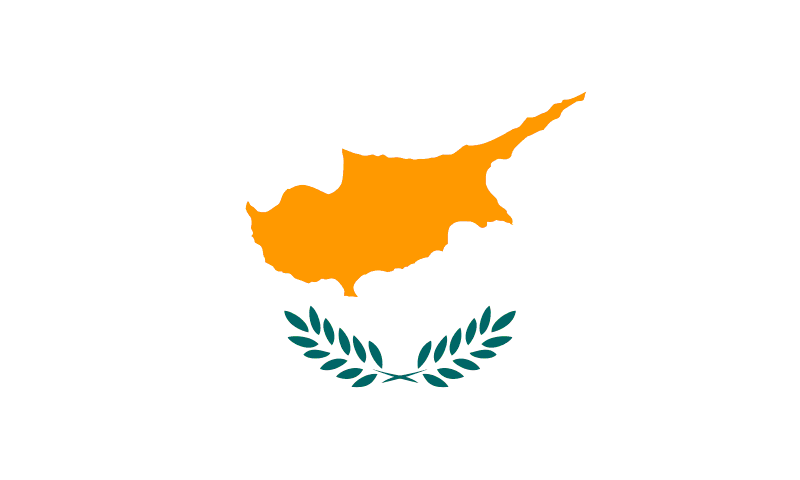
This analysis by Robert Ellis was first published at PoliGazette.
Like Ireland, Cyprus has been a victim of geography and both are today still divided. As the Arab geographer Muqaddasi wrote in 985: “The island of Qubrus is in the power of whichever nation is overlord in these seas”. And with its position 40 miles off the southern coast of Turkey and 70 miles from Syria it has been a strategic prize for centuries.
This outpost of Hellenic civilisation was conquered by the Crusaders in the twelfth century to secure their route to the Holy Land and later by Venice. When Famagusta fell to the Ottomans in 1571, the island’s fate was sealed. Therefore it is ironic that the British took over Cyprus with its mixed population in 1878 as a result of a deal with Turkey to protect the Ottoman Empire against the Russians, who have lurked in the background ever since.
The island’s Greek identity was emphasized in its support of the Greek revolt against Ottoman rule in 1821 and with the participation of both the Greek Cypriot majority and the Turkish Cypriot minority in a legislative council under British rule. When other Greek islands under Turkish occupation such as Crete and the Dodecanese were united with Greece, the same demand grew in Cyprus. As a result, a plebiscite held among Greek Cypriots in 1950 showed a 96.5 percent support for enosis (union with Greece).
As the British were only prepared to give the Cypriots limited self determination, a terrorist organisation EOKA was formed, which in 1955 launched a campaign to force Britain to withdraw. But the campaign was counter-productive, as this was met by the formation of the Turkish Cypriot paramilitary TMT with a demand for taksim (partition).
However, as Britain depended on the Middle East for 70 percent of its oil imports, it was not prepared to give up control of the island. As Prime Minister Sir Anthony Eden put it at the time: “No Cyprus, no certain facilities to protect our supply of oil. No oil, unemployment and hunger in Britain. It’s as simple as that.”
Consequently, Britain invited both Greece and Turkey to a conference in London to discuss questions concerning the Eastern Mediterranean. But as defence minister Selwyn Lloyd explained to the Cabinet before the conference: “Throughout the negotiations our aim would be to bring the Greeks up against the Turkish refusal to accept enosis and so condition them to accept a solution, which would leave sovereignty in our hands.”
Independence
The ruse was only partly successful, because under American pressure for guaranteed independence, a deal between was brokered between Greece and Turkey in 1959, which resulted in a power-sharing constitution and independence the following year. A Treaty of Establishment also provided for two permanent British bases, and a Treaty of Guarantee between the new Republic, Greece, Turkey and the UK, prohibited the union of Cyprus with any other state or partition.
Nevertheless, Greek Cypriot nationalists under the leadership of their new President, Archbishop Makarios, continued to strive for “Enosis and only enosis”. When Makarios three years later proposed a number of amendments to the Constitution, which reduced the status of the Turkish Cypriots to that of a minority, fighting broke out between the two communities. In March 1964 this resulted in a UN resolution to put in a peacekeeping force, UNFICYP, which has been in place for the last 45 years.
After an attack by the Greek Cypriot National Guard on Turkish Cypriot positions Turkey recciprocated with the bombing of Greek Cypriot villages and the situation was critical. Makarios, who had already joined the non-aligned movement, appealed to the Soviet Union for arms and support, and George Ball, the US Acting Secretary of State, told President Johnson they faced the most dangerous confrontation since the Cuban missile crisis.
With the additional risk of war between two NATO allies, Greece and Turkey, Johnson addressed a severe warning to Turkey against military intervention. Consequently, Dean Acheson, the former Secretary of State, and Ball put forward a plan for the partition of Cyprus to solve what Johnson had called “one of the most complex problems on earth”.
Because of US preoccupation with the situation in Vietnam the plan was shelved but another outbreak of fighting in 1967 once again brought Greece and Turkey to the brink of war. By 1974 Makarios, “the Castro of the Mediterranean”, had succeeded in alienating the Greek junta, Turkey and the United States, who together brought about his downfall.
Partition
In July the same year the Greek junta instigated a coup to topple Makarios and five days later – when Britain failed to intervene – Turkey took matters in its own hands and invaded, dividing the island into two zones. The coup failed and Makarios was reinstated but a few months before he died in 1977 he came to the conclusion: “It is in the name of enosis Cyprus has been destroyed.”
Since 9/11 the strategic importance of the island has increased and a solution to the Cyprus question is the key to improved relations between EU and NATO. Turkey’s refusal to recognize the sovereignty of the Republic of Cyprus, which became a member of the EU in 2004, is also a stumbling block to its own accession talks.
There have been numerous initiatives on the part of the UN to reunify Cyprus, latest the Annan Plan in 2004. This was, however, rejected by the Greek Cypriots, because it failed to provide for the complete withdrawal of Turkish troops and adequate restitution and compensation for the loss of Greek Cypriot property. There is also the fact that Turkey since the occupation has maintained a policy of colonisation and assimilation by mainland Turks.
In 1983 the Turkish Cypriots declared the northern part of the island to be an independent state, which has only been recognized by Turkey. This, or a confederation with the Greek Cypriot south, is the preferred Turkish solution but recently Turkey has struck an ominous note. In an echo of Germany’s “Heim ins Reich” (Back to the Reich) policy in 1938 Prime Minister Erdogan has indicated his patience is exhausted and Foreign Minister Davutoglu cannot say whether Turkey has reached its final borders as established by the 1923 Lausanne Treaty.
Given Turkey’s strategic importance, it would be unfortunate if Europe faced a new Sudetenland crisis, which would put an end to Turkey’s prospects of EU membership. And to do as Neville Chamberlain and dismiss the Cyprus issue as “a quarrel in a faraway country between people of whom we know nothing” could be fatal.
Robert Ellis is a regular commentator on Turkish affairs in Denmark and from 2005-2008 was a frequent contributor to the Turkish Daily News.
